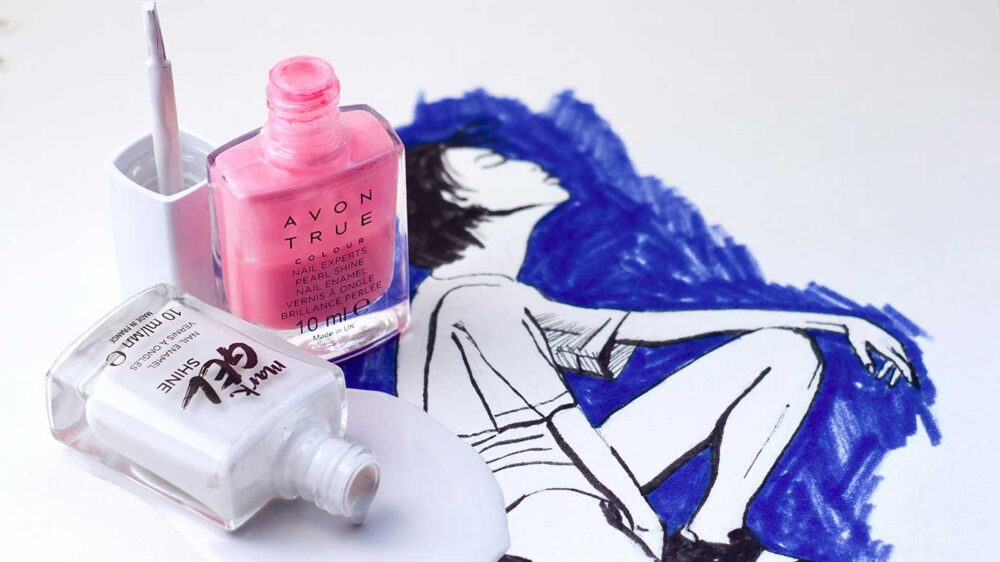It is the dream of many Britons to one day start their own business, with some having a special interest of starting a cosmetic brand, as there is the potential for incredible success.
However, navigating this path requires more than just a great idea and enthusiasm. It demands a deep understanding of various factors, from product development to marketing strategies. In this comprehensive guide, we’ll explore what you need to consider when creating your own cosmetic brand.

Identifying Your Niche in the Beauty Industry
🏆
The 2024 Creative Retail Awards are open for entries.
The Creative Retail Awards are much more than a mere accolade; they represent the pinnacle of achievement in the retail industry. Garnering a nomination or winning one of these awards is a testament to innovation, excellence, and leadership.
www.creativeretailawards.com
The beauty industry is vast and diverse, with countless brands vying for attention. The key to standing out is identifying a unique niche that resonates with a specific audience. Ask yourself: What makes my brand different? Is it a commitment to natural ingredients, a focus on a particular demographic, or perhaps an innovative product line? Understanding your unique selling proposition (USP) is crucial in setting the foundation for your brand.
Research plays a pivotal role in this process. Investigate current trends, analyse competitors, and gather feedback from potential customers. Tools like Google Trends and social media platforms can provide valuable insights into what consumers are seeking. Remember, your niche should align with your passions and expertise, as authenticity is a significant factor in building a loyal customer base.
The Importance of Quality Product Development
Once you’ve pinpointed your niche, the next step is product development. This stage is where your ideas come to life, but it also involves critical decisions. Formulating products that are safe, effective, and appealing requires a thorough understanding of ingredients, manufacturing processes, and regulatory standards.
Partnering with reputable manufacturers is vital. They can help you navigate the complexities of formulation and ensure that your products meet industry standards. Additionally, consider the packaging of your products. Packaging not only protects your product but also communicates your brand’s identity. Innovative packaging solutions, like pump bottles for products, offer practical and aesthetic benefits. For instance, airless pump bottles from BlueSky ensure product longevity and ease of use, enhancing the customer experience.
Navigating Regulatory Compliance and Safety Standards
Safety and compliance are not just buzzwords in the cosmetic industry; they are essential for the credibility and longevity of your brand. Different countries have varying regulations regarding cosmetic products. In the UK, for instance, the Cosmetic Products Enforcement Regulations 2013 governs the safety, labelling, and composition of cosmetic products. Familiarising yourself with these regulations and ensuring your products comply is crucial.
It’s advisable to work with legal experts or consultants who specialise in cosmetic regulations. They can guide you through necessary safety assessments, labelling requirements, and certification processes. Remember, a proactive approach to compliance not only safeguards your brand but also builds trust with your customers.
Crafting a Compelling Brand Identity and Marketing Strategy
Your brand identity is the heartbeat of your business. It encompasses your brand’s name, logo, colour scheme, and the overall message you wish to convey. A strong, consistent brand identity helps in creating a memorable impression and fostering customer loyalty. Consider what emotions and values you want your brand to evoke and ensure they are reflected in every aspect of your branding.
Once your brand identity is established, focus on your marketing strategy. In today’s digital age, an online presence is non-negotiable. Utilise social media, email marketing, and a user-friendly website to connect with your audience. Influencer partnerships and content marketing can also be effective ways to reach potential customers. Moreover, don’t underestimate the power of storytelling; share your brand’s journey and values to create a personal connection with your audience.
Financial Planning and Management
Starting a cosmetic brand requires significant financial investment. From product development to marketing, every stage involves costs that need to be meticulously planned. Prepare a detailed business plan outlining your estimated expenses, projected revenue, and funding sources. This plan will not only help you manage your finances but also prove invaluable if you seek investment or loans.
It’s important to keep a close eye on your cash flow, especially in the early stages of your business. Effective financial management ensures you have the resources to grow and adapt as needed. Consider using accounting software or hiring a financial advisor to help you keep track of your finances.
Understanding and Embracing E-commerce
In the current market, having a strong e-commerce strategy is indispensable for cosmetic brands. The shift towards online shopping has been significant, and your ability to adapt to this trend can make or break your business. When setting up your online store, focus on user experience. Ensure that your website is not only aesthetically pleasing but also easy to navigate, mobile-friendly, and secure.
Moreover, consider how you’ll handle logistics like shipping and returns. Customers expect quick, reliable delivery and a hassle-free return policy. Partnering with efficient logistics providers can enhance customer satisfaction and encourage repeat business.
Incorporating customer reviews and feedback on your website can also boost credibility and sales. Remember, online shoppers rely heavily on reviews to make purchasing decisions.


















